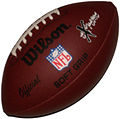Will Financial Regulation Make Us Safe?
It is with a bit of fear that I take over the podium as a guest blogger. The thought of coming up with enough substance to satisfy the cravings of an unnamed and faceless reader base is a bit frightening. So, please excuse me if my nervousness shows through in my writing.
So, first a bit about me. I have been very fortunate to have had a fantastic fifteen-year career in the hedge fund business (which does make me a bit of a dinosaur in the industry). Most recently, I was the President and Chief Operating Officer of Stark Investments (one of the oldest hedge funds in the world). During my career working in the business, I have done about everything – from providing legal counsel, to co-managing a large portfolio, to ultimately taking responsibility for the execution of the strategic vision and the overall administration of a large organization. I am a 1993 graduate of the Marquette University School of Law (and have to say that I am thrilled at all of the very positive developments at the Law School – kudos to Dean Kearney and his team!). All of that being said, I have had the fortune (or misfortune as the case may be) of having had a front-row seat throughout this period of financial crises.
It is with this background in mind that I will spend my month at the podium discussing the markets, the financial crises, financial regulation, and the evolving nature of some of the key players in the markets (investment banks, hedge funds, and other investors).


